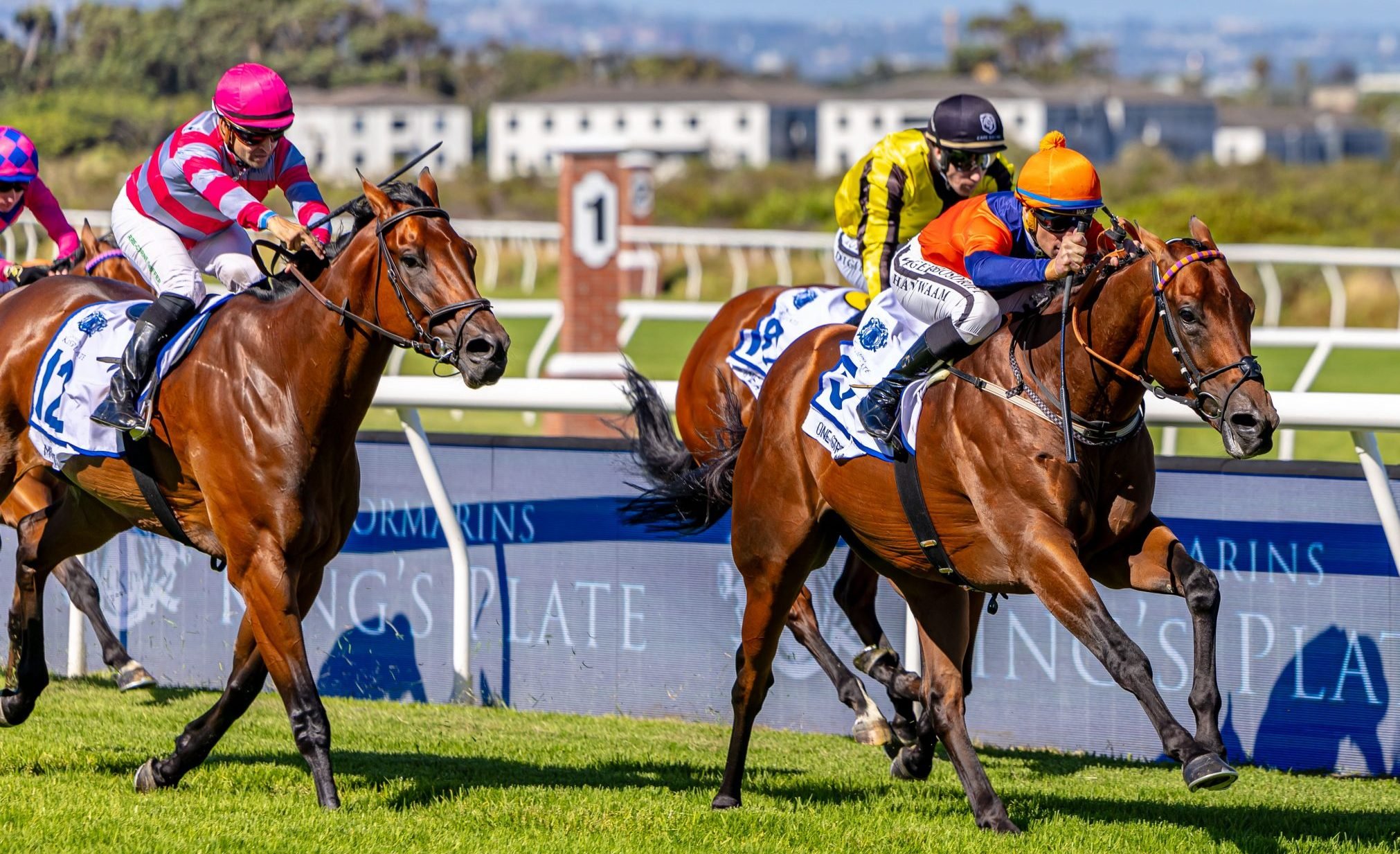Tony Rivalland , representing trainers as chairperson of SANTA (the SA National Trainers Association), confirmed that he had enjoyed a fruitful meeting with the NHA on Monday on the issue of TCO2 testing.
The testing led to three scratchings over the weekend, with one of them indirectly leading to the big racemeeting at Hollywoodbets Greyville being abandoned.

Tony Rivalland (right) with Gold Circle Racing Executive, Raf Sheik (Pic – Candiese Lenferna)
Turf Talk report that the outcome of an earlier meeting with the NHA about the issue was that there had been an agreed concession that despite an international norm of a 36.0 mmol/L threshold level for TCO2, in SA the threshold would be raised one point to 37.0 mmol/L.
Monday’s meeting was called due to a request from some trainers that it be upped to 38 mmol/L.
However, Rivalland emerged from the meeting happy to concede that 37 mmol/L was the right way to go.
He added, “At this point in time no trainers will be fined when their horses are scratched for being 37 or over. There is no penalty at the moment because obviously at this stage maybe some of these horses testing 37 or slightly over are not being intentionally ‘milkshaked’. There is something that is causing a higher than normal alkalizing effect in the horse and there will be road shows taking place over the next month whereby the NHA will convene meetings with trainers to explain to them why there are no fines at present and discuss the possible reasons for inadvertently high levels of TCO2. He said sometimes they will inform the trainer if it is above 35, just so the trainer is aware that something that is inadvertently in the feed, or something that the horse may have been given, could have caused it. However, information that is not breaking rules is never published.”
He continued, “So at this stage I am happy to concede that 37 is the level at which they will scratch horses. All this data has been reviewed and it will be reviewed again in the future. I think it was a productive meeting and I think they are addressing the matter reasonably, because there are no penalties for being above the limit at this stage, although obviously the penalty is that the horse does not compete in the race.”
He added, “So I feel it is fairly positive. I think the trainers will accept it. I will be sending them a letter with a bit more detail about what took place in the discussions and about the road shows.”
He continued, “There have been a lot of horses tested and there are only a very few of them who have been over the limit. I think six horses have been scratched in total since they have been doing it and they have data right from last year.”
Rivalland said he did not believe any ‘milkshaking’ had occurred for the horses that were slightly above the threshold.
He added, “For the ones who were a bit more above it is possible there was an alkalizing agent given. Whether it was intentional or inadvertent based historically on what trainers were used to doing going in to a race, is why there is no penalty. So I think that is a reasonable approach. It gives the trainer an opportunity to review his or her feeding methods or any natural method or regimes that he or she has been using going in to a race and to make adjustments to it.”
He continued, “There will be penalties at some stage in the future otherwise it is pointless doing the test and that should act as a further deterrent to the trainer who is misguided in his or her approach into bringing a horse into a race.”
www.turftalk.co.za








